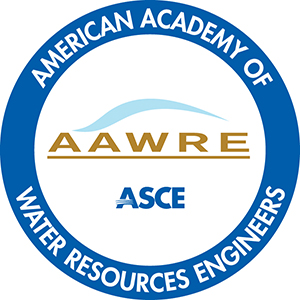Water Resources Engineering
Board-certified water resources engineers demonstrate advanced knowledge and expertise that sets them apart in the field.
Benefits of Water Resources Engineering Board Certification
- Recognizes leaders in water resources engineering.
- Widely respected by clients, employers, peers, and the public.
- Demonstrates expertise in specific areas of water resources engineering and a commitment to staying up to date with new technology.
- Reflects a strong dedication to professionalism, ethics, and continuous professional development.
- Board-certified individuals may qualify for an additional discount on liability insurance through ASCE, saving 5 to 7.5%.
Become a Board Certified Water Resources Engineer
Water Resources Engineering Body of Knowledge
The Water Resources Engineering Body of Knowledge, version 3 (WRBOK3) describes the knowledge and core competencies integral to understanding the practice of water resources engineering.

Prepare for and Maintain Your CEC Certification with ASCE Continuing Education
Prepare for and maintain your CEC board-certified engineer credential with ASCE’s expert-taught continuing education programs, featuring diverse in-person, live online, and on-demand courses designed to support and advance your career. Explore the many ways to grow your knowledge, advance, and stay current with your professional career and maintain your CEC credential.
Learn moreCEC’s Water Resources Engineering Board Certification program is administered by the American Academy of Water Resources Engineers (AAWRE).

Show your pride in being a CEC board-certified engineer with CEC-branded merchandise
Purchase a polo or long sleeve shirt with the CEC logo from our new CEC Lands' End Store!
Simply choose your item, click the “Apply Logo” button and select logo placement.
Not all products can be personalized with the CEC logo.


